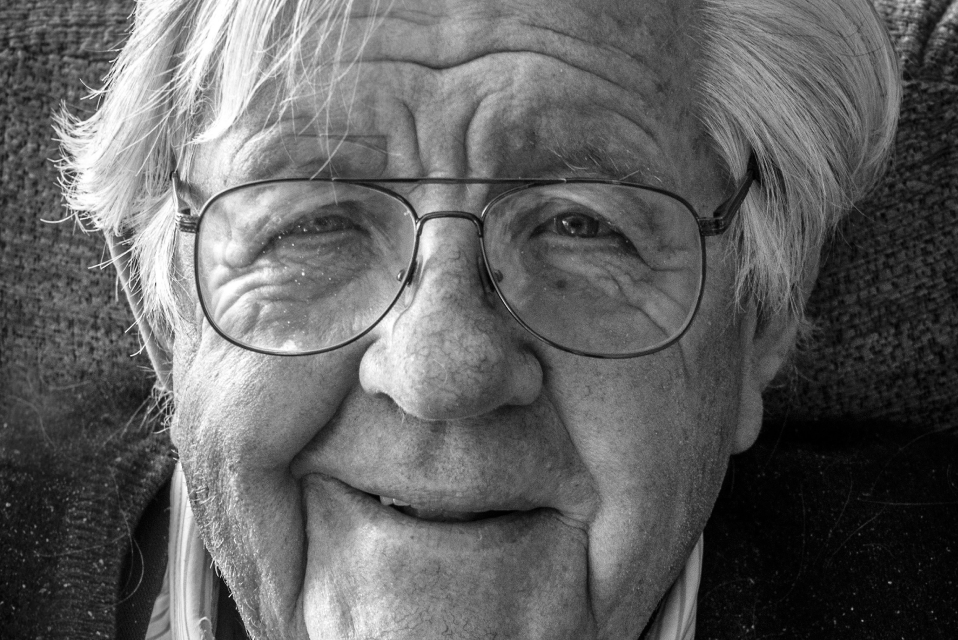My first introduction to Darwin College
I first became aware of Darwin College in an unexpected way. It was in Uganda where I had been appointed Director of a British Medical Research Council establishment, The Child Nutrition Unit. One day, much to my surprise, there was a knock at my door and in walked Professor Sir Frank Young, a man I hardly knew. Apparently, he was on a rather delicate mission for the Inter-Universities Council, and he thought he might inadvertently have made some unfortunate diplomatic error. It was quite apparent to me that he had not done so, and I was able to resolve the non-existent problem with a quick telephone call.
Luckily for me, this chance meeting made us good friends for the rest of his visit. Chatting on our veranda in the evenings it became obvious that things back in Cambridge were very much on his mind. Perhaps talking to someone who had few links with Cambridge, and was unlikely ever to have again, it was easier for him to ponder over his responsibilities and aspirations for the developing new College, Darwin, of which he was the Founding Master.

Photo: Roger Whitehead
I remember him explaining how the overall educational balance of Cambridge was changing, with a growing emphasis on graduate education. This meant that an increasing number of rather more mature students would be coming to Cambridge for the first time, graduates from other universities in the United Kingdom as well as from overseas to study for advanced research degrees.
In some ways even more challenging was the fact that an increasing proportion of these would be women! Darwin had come into being as the first coeducational graduate College in Cambridge in response to this and, with a small group of Founding Fellows, had become Frank Young’s primary responsibility and passion.
The deteriorating political situation in Uganda meant that I was shortly afterwards ordered to close my research unit there and I was appointed Director of the Dunn Nutrition Laboratory in Cambridge. On arrival I was lucky to be given dining rights by Frank Young at Darwin and shortly afterwards made a Fellow.
In 1973 Darwin College was much smaller than it is now. Although a new dining room had been built and limited accommodation provided within the College, many of the students were accommodated in houses in different parts of the city. For some this was convenient as they could live near their laboratory or other place of study, but it did mean that they might also become separated from collegiate activity, which at this time tended to centre around frequent Formal Halls. An unusual feature for the time of these Formal Halls was that the spouses of Fellows and graduate members were also encouraged to dine regularly in College. This development had been very much encouraged by the Master’s wife Ruth Young, a psychiatrist by profession.
The College owes a great debt to Ruth for making the College the friendly and understanding place it is for the differing needs of more mature students. I remember one of my first tasks as a Junior Fellow was to chair a small meeting to decide how children might also be accommodated for less formal meals.
One result was the provision of a couple of highchairs for lunch times, a feature which often caused amusement to visitors from other Colleges!
This was also my first experience of Cambridge College Governing Bodies. During this period we were not completely independent, but still subject to the guidance of the founding Colleges: Trinity, St John’s and Gonville & Caius. Meetings were dominated by the development of Statutes and Ordinances which to my surprise had also to be acceptable to the Privy Council. One issue that went back and forth concerned our plans to have significant representation from the graduate students on the various College committees – it took some effort to convince the Privy Council that a graduate College benefited from such an extended membership. To many of us responding to such challenges seemed like unnecessary bureaucracy, but through the Master’s judicious chairmanship Darwin was able to evolve and reflect the needs of a graduate institution.
Since then we have had a series of excellent Masters who have introduced a variety of innovative educational developments, but we owe much to the careful stewardship of the first Master and his small group of Founding Fellows. Thinking back to those hopes and aspirations he talked to me about on my veranda in Uganda, I often wonder if Frank Young would be proud if he walked into the College today. I feel sure he would be.
RG Whitehead
